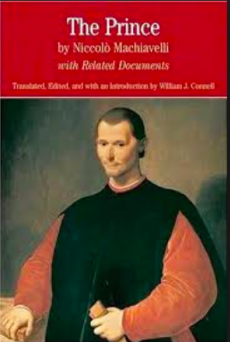
Email: lienaaltai@icloud.com
Total Article : 47
About Me:Sixth form student with an interest in a wide variety of topics such as languages, history, philosophy, politics and literature

The process of elimination is crucial when finding what to make of any event given the exploding amount of material that’s out there. This leaves the essential question of - what matters the most? A theory is a simplifying tool which allows you to decide which facts are relevant and which are not and in international relations, there are many.
The most dominant theory of international relations is realism. First and foremost, realists believe in statism. This is that the state has supremacy in international relations and that nothing is above it. This is because states are thought to be a representative of the collective will of the people, therefore, multinational corporations and organisations are restricted by the state, having to work within their frame. Although, critics raise the point of the inability of sovereign states to respond to collective global problems such as famine, environmental problems and human rights abuses.
According to realists themselves, they flock to this theory as it provides the best explanation for war. War in realism is a central concept, believed to be natural and often necessary. As a result, a strong military force is one of the main aims when implementing foreign policy.
When dealing with foreign relations realists have a more pessimistic view, believing that human nature is essentially selfish and that it is fixed. With regards to ethics, realists dismiss the idea of universal morality and therefore do not adhere to the notion of ethical conduct rather, they assume that all nations want to maximise national interest. To achieve a maximisation of national interest, everything is fair play. It is acceptable for human rights to become secondary in attempt to achieve this. Realists insist on not relying on any sort of international institution such as the united nations to survive. Critics respond to this by highlighting that there’s no restriction on the actions a state can take in the name of necessity meaning that with the rise of realism, there will naturally be a decline in ethics.
An infamous realist thinker is Niccolo Machiavelli, an Italian Renaissance politician, philosopher and writer. In 1513, he wrote The Prince in which he encourages the use of violence and deceit against other nations. He also warns about the danger of moral behaviour, claiming that it will inevitably bring about disaster.
However, there are subcategories with realism.
1. Structural realism disagrees with classical realism when it comes to the products of human nature. Instead of placing the blame on human nature for producing fear, jealousy and, suspicion, they blame anarchical systems.
2. Neoclassical realism states that classical realism lacks focus on the implementation on how power and how leadership is exercised.
There is no avoiding war; it can only be postponed to the advantage of others - Nicollo Machiavelli
Image URL: http://articles.chicagotribune.com/2012-01-30/entertainment/sc-ent-0118-books-change-machiavelli-20120130_1_niccolo-machiavelli-readers-political-titles

0 Comment:
Be the first one to comment on this article.